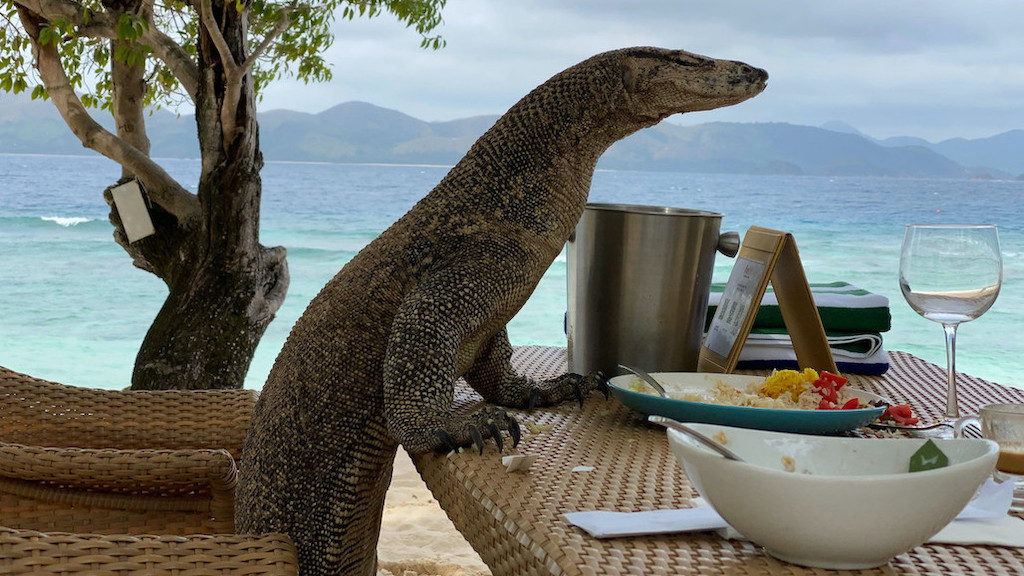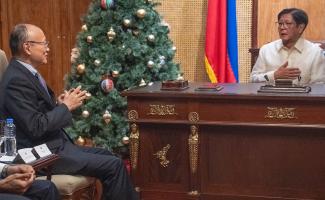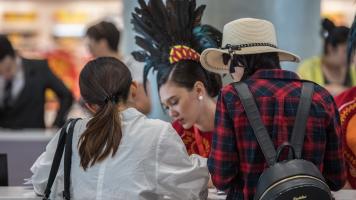
The diverse flora and fauna in Palawan and Mindanao is a big draw for tourists. Photo credit: ADB.
Tourism authorities in the Philippines caution travelers to check safety protocols and travel requirements for every destination they want to visit.
Traveling may sound daunting with the Omicron variant making its way worldwide, but it can still be fun and meaningful even with health protocols in place.
That is the message Philippine tourism authorities want to drive across as the government's travel website cautions tourists to stay home for now and follow community quarantine protocols while still promoting the country's tourist destinations and experiences.
The website now headlines the tagline “Have a Safe Trip, Pinas” and lists destinations across the Philippines, including those in Palawan and Mindanao, which reopened to local travelers just before Omicron hit. Pinas is Philippines in the vernacular.
The messaging is also reflected in the government's “Have a Safe Trip, Pinas” video, which bagged an international citation.
In the video, a young man and woman travel to popular tourist destination Boracay and are shown exploring the island, enjoying local food, and trying helmet diving and parasailing. Eventually, they are shown getting married at the beach.
‘Happy to make you happy again’
The video highlights “moments” of the couple while exploring and enjoying the island’s offerings while observing health protocols. The people assisting them are shown always with masks on. Even during the wedding, guests also have masks on, with the mother of the bride sporting a dressed-up mask with lace.
The video notes that behind every moment is a smile from all the people catering to guests—from the wedding photographer and the wedding planner to the vendor who sells trinkets to tourists, the boatman who brings in guests to the island, and the hotel staff.
The video ends with the tagline, “Happy to make you happy again.”
The video bagged a citation from the United Nations World Trade Organization (UNWTO) for showcasing the human face of sustainable tourism.
Kick-starting domestic travel
The government’s tourism website now also displays a collage of picturesque destinations and experiences interspersed with illustrations of health protocol reminders, including an image of the 2-meter distancing required and another showing hand washing.
The #SafeTripPH landing page went live in December, signaling that the Philippines is pressing ahead with its campaign to promote domestic travel amid the coronavirus disease (COVID-19) pandemic. The website showcases varied tourist experiences and destinations in both Palawan and Mindanao, famed for their natural and cultural wonders.
Encouraging domestic travel is a way to kick-start the sector’s recovery. The UNWTO has advised countries to highlight domestic tourism as it is seen to recover faster than international travel during the pandemic.
In a media report, Philippine Tourism Secretary Bernadette Romulo-Puyat said the “days of despair are over,” noting that the travel industry is "slowly but surely and safely" recovering.
Health protocols
Since the government’s tourism website now lists reopened destinations across the Philippines, each destination also lists vaccination and test requirements for travelers.
For instance, for popular destination El Nido in Palawan, authorities are requiring fully vaccinated guests to show their vaccination card and a negative real-time reverse transcription polymerase chain reaction (RT-PCR) test result for those unvaccinated. Only individuals who are 18–65 are allowed. For Puerto Princesa, also in Palawan, guests are required to show their vaccination card and a negative antigen test result.
The requirements also differ in Mindanao, depending on the city and municipality. Some require the vaccination and negative RT-PCR tests, but others do not ask for such documents, only that guests be aged 18–65.
The site advised guests to check with every local government before making travel plans. The Department of Tourism's official Facebook account also reminds tourists to first check entry requirements before traveling.
In early 2021, the government launched a “safety seal” program, which accredits businesses for observing health standards and good housekeeping to protect guests, customers, and workers amid the pandemic. The program includes tourism establishments, like hotels and resorts. The program is a voluntary certification scheme.
This article was first published by BIMP-EAGA on 20 January 2022.

BIMP-EAGA
The Brunei Darussalam–Indonesia–Malaysia–Philippines East ASEAN Growth Area, or BIMP-EAGA, is a cooperation initiative established in 1994 to spur development in remote and less developed areas in the four participating Southeast Asian countries.


